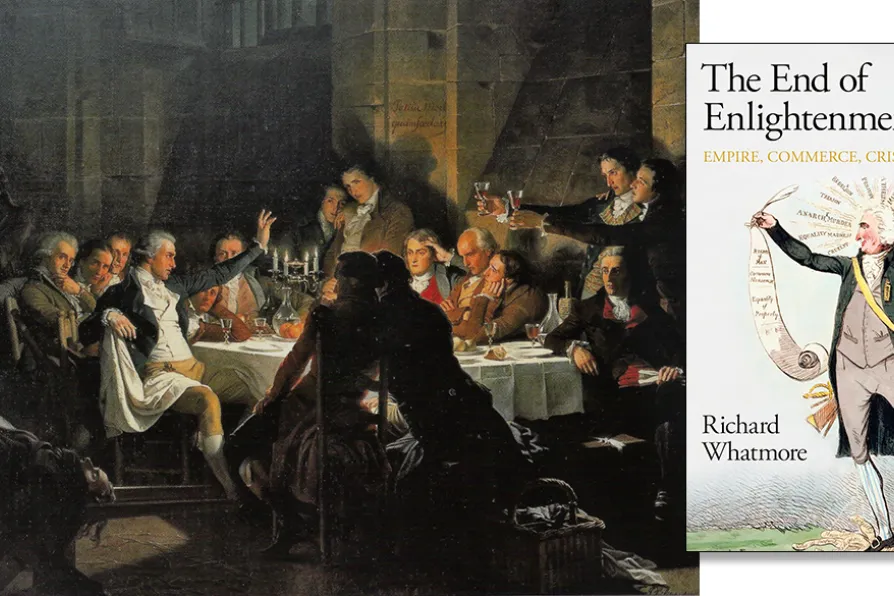MIK SABIERS savours the first headline solo show of the stalwart of Brighton’s indie-punk outfit Blood Red Shoes
Not so enlightened
GORDON PARSONS is intrigued by perception of Enlightenment thinkers of the imperialist, colonialist, racist and capitalist nature of their times

 The 21 Girondins including Jacques Pierre Brissot, condemned to the guillotine in their prison at the Conciergerie, 30 October 1793. The body of Charles Eleonor Dufriche-Valaze, who stabbed himself in the courtroom, is in the foreground. Painted by François Flameng, lithograph by Eugene Gaujean, 1879
The 21 Girondins including Jacques Pierre Brissot, condemned to the guillotine in their prison at the Conciergerie, 30 October 1793. The body of Charles Eleonor Dufriche-Valaze, who stabbed himself in the courtroom, is in the foreground. Painted by François Flameng, lithograph by Eugene Gaujean, 1879
The End of Enlightenment: Empire, Commerce, Crisis
Richard Whatmore
Penguin, £30
PROFESSOR Richard Whatmore, co-director of St Andrews University’s Institute of Intellectual History, believes that studying the ideas in action of influential figures of the past can lead to our understanding of how we might react to the problems of the present.
Here, he re-examines what he sees as the end of that period in the 17th and 18th centuries called the Enlightenment, which saw mankind escape from the stranglehold of religion and superstition and turn to science and reason.
Similar stories

GORDON PARSONS recommends the biography of the German polymath whose life provides an interesting take on a revolutionary age

ALEX HALL is intrigued by a left-wing account of the cleavage between class-based politics and culture-based politics

GORDON PARSONS recommends a fine introduction to a philosopher who, like Marx, worked to help society to reject illusion and understand the realities of the human condition

Socialist historian KEITH FLETT traces the parallel evolution of violent loyalist rampages and the workers' movement's peaceful democratic crowds, highlighting the stark contrast between recent far-right thuggery and mass Gaza protests









